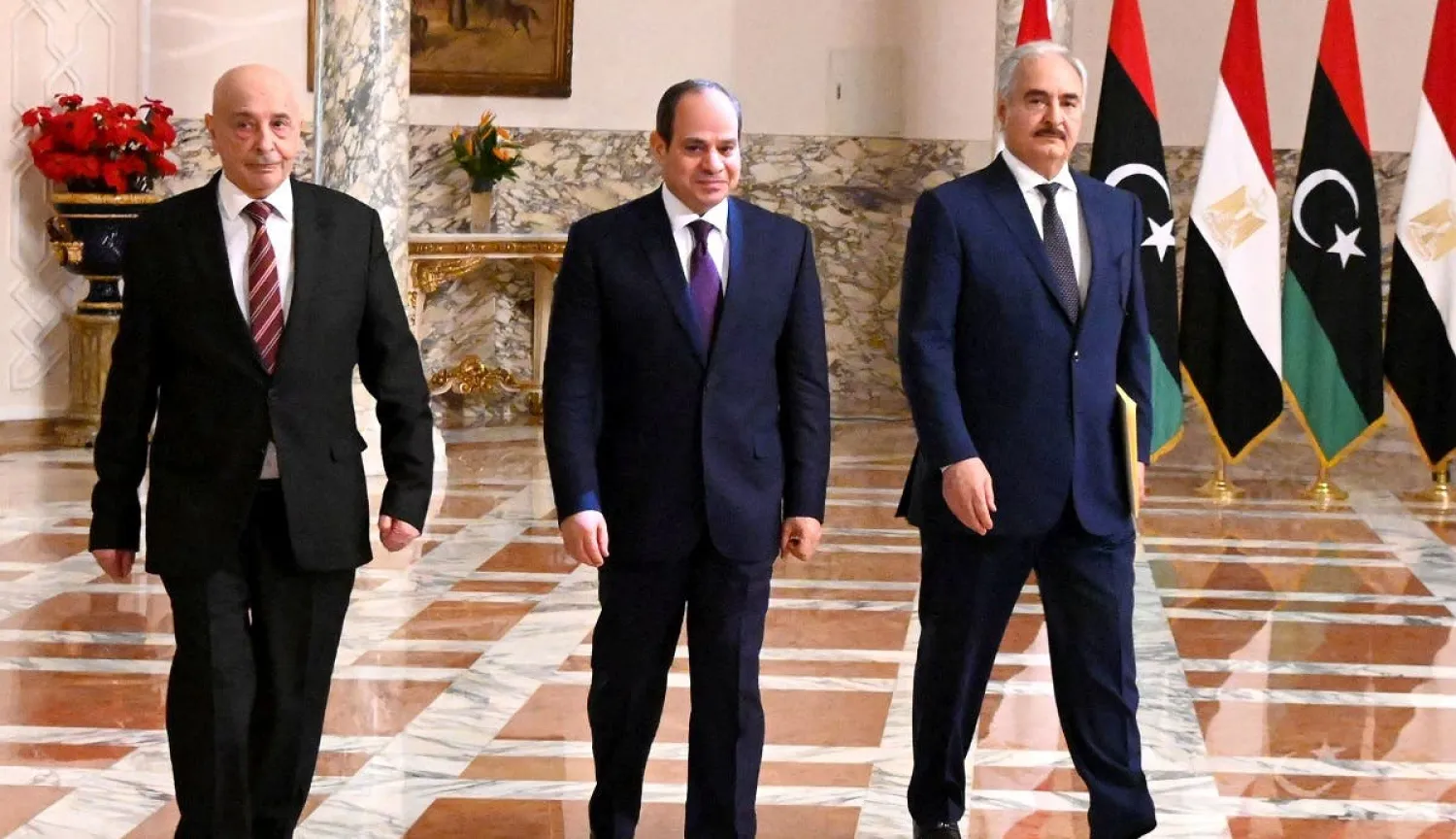Speaker of the east-based Libyan parliament Aguila Saleh declared Wednesday that the Libyan people support Egyptian President Abdul Fattah al-Sisi’s efforts to reach a ceasefire in their country.
Speaking from al-Qubah in eastern Libya, he said lawmakers have contacted the people, who were unanimous in backing Sisi’s efforts towards their country, whether in regards to his Cairo Declaration or his readiness to intervene militarily to help them preserve their resources against foreign forces.
Sisi, he added, demanded that the warring parties remain in their positions and reach a political agreement based on January’s Berlin conference.
He did not make threats or attack any side, Saleh told the Middle East News Agency.
Egypt’s intervention in Libya will not be aimed at supporting one side against the other, he clarified, but rather, the president is encouraging all parties to hold dialogue and reach a peaceful solution.
He added that the Libyan people will formally call on Egypt to intervene militarily if it was deemed necessary to safeguard the national security of both neighbors. Such an intervention would be a legitimate act of self-defense if the terrorist militias and armed gangs cross the red lines in Sirte or a-Jufra, as stipulated by Sisi on Saturday.
Should Sirte be breached, then the Egyptian armed forces will be called in to support the Libyan National Army, Saleh stated. This intervention will be part of Cairo’s efforts to protect it rights and prevent the militias from heading further east towards its borders.
LNA boost presence in Sirte
On Tuesday, LNA spokesman Ahmed al-Mismari announced that the military had bolstered its presence in Sirte city and now controls it by land and air.
The LNA used the pullout of its forces in Tripoli to cement its presence in Sirte, he explained.
Meanwhile, the US military denied what it described as “inaccurate” reports that the Tripoli-based Government of National Accord (GNA) had proposed granting it permission to set up a military base in Sirte or military privileges at the al-Watiya airbase.
US Africa Command Public Affairs Director, Chris Karns told Asharq Al-Awsat that there was a lot of unhelpful and inaccurate speculation going on.
GNA chief Fayez al-Sarraj had allegedly made the proposal during a meeting on Monday with US Ambassador to Libya, Richard Norland, and Commander of US Africa Command, General Stephen Townsend.
Karns said the main message during the talks was the need for a ceasefire and return to political negotiations.
An official source at Africom told Asharq Al-Awsat that Monday’s meeting was held at Norland’s request.
The talks focused on the need for an immediate ceasefire and cessation of hostilities by all parties, added the source on condition of anonymity.
Separately, Syrian Foreign Minister Walid al-Muallem stated on Tuesday that his country backs the LNA, Libyan institutions and territorial integrity.
Libya today is victim of foreign meddling and ambitions, starting with the Turkish aggression that has its sights set on its resources, he remarked.









